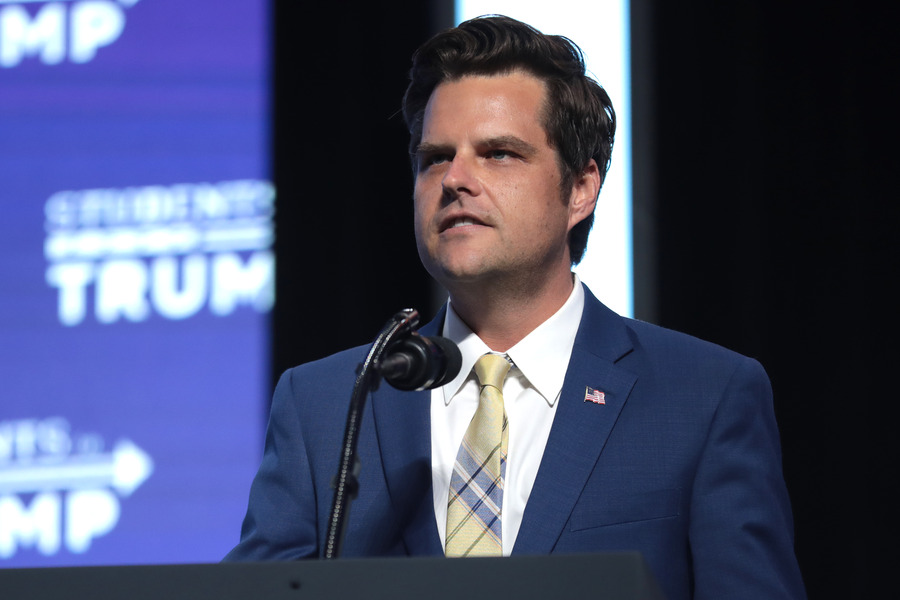Congress's Role in the Debate over Trump's Executive Order
As Lawfare readers are well aware, a legal battle over President Trump’s immigration order is underway in courtrooms across the country. Last night, three judges from the U.S. Court of Appeals for the Ninth Circuit ruled to uphold the nationwide injunction against enforcing the Executive Order, first issued last Friday by a federal district judge in Seattle.
Published by The Lawfare Institute
in Cooperation With

As Lawfare readers are well aware, a legal battle over President Trump’s immigration order is underway in courtrooms across the country. Last night, three judges from the U.S. Court of Appeals for the Ninth Circuit ruled to uphold the nationwide injunction against enforcing the Executive Order, first issued last Friday by a federal district judge in Seattle.
The ruling is significant for a number of reasons, including the court’s clear rejection of the notion that it lacks authority to review a President’s national security judgements. Last night’s order, however, did not resolve the case on the merits. That fight is still to come. Despite the courts’ historical deference on immigration and security matters, there are reasons to think that President Trump’s Executive Order might not withstand legal scrutiny on constitutional grounds. That said, the statute in question does extend very broad authority to the President on immigration and the constitutional case against the ban is not a slam-dunk. The precise legal arguments will, do doubt, be rigorously debated on Lawfare in the coming weeks and months.
However, there is an important question distinct from whether courts can strike down the order, and that is whether Congress should step up and prevent that burden from falling to the courts at all.
Even those (myself included) who think the Order should probably be overturned in court given the evidence of discriminatory intent, acknowledge that the most persuasive arguments against it are not legal, but rather moral and practical. That has interesting and important implications as to the institutional actors best positioned to put the brakes on what has been an ill-conceived policy rollout.
I am not alone in suggesting that policy considerations provide the most powerful case against the Order. To the extent that it is rooted in bigotry, it is at odds with our values. It is also deeply detrimental to our national security. It weakens our alliance with Europe at a time when that relationship is critical to addressing Russia’s revanchism. It puts pressure on Syria’s neighbors, themselves fragile, who are struggling to address the needs of those fleeing the violence caused by now more than five years of civil war. It weakens the humanitarian system, which is intended to ensure that displacement, even on a massive scale, does not undermine international security. To the extent that it adds credibility to narratives of civilizational struggle, it makes it easier for extremist organizations to recruit. It also alienates ordinary Muslims, who may worry that cooperation with law enforcement—an essential part of efforts to counter violent extremism—would make them targets of harassment. As Dan Byman observed, “successful counterterrorism depends on community support, and the Executive Order drives communities away from government.”
The thing is: it is not really the court’s proper place to opine on these policy issues. That is the role of Congress. And so rather than leaning on the courts, our elected representatives—vested stewards of the national interest—should step up and oppose the President’s Order on the grounds that it is both reckless and wrong.
They have the authority to do so. Simply by passing legislation stating that it “shall not have any legal effect,” Congress could nullify the Executive Order in its entirety. That would not be unprecedented. It would also not be easy, given that it would require a two-thirds majority in both chambers to overturn the inevitable veto. At least 20 Republicans in the House and Senate have, to some degree, expressed opposition to the President’s Order, but Republican leadership quickly blocked efforts by Senate Democrats to upend it.
Congress could also limit the operative terms of the Order rather than moving to nullify it in its entirety—for example, by explicitly preventing religion from being used as a basis for prioritizing which refugees are granted admission, or by requiring the president seek authorization for suspending refugee resettlement. Congressional action of this sort is a critical constitutional check on the executive.
The bottom line is that we are placing on the courts a heavy, politically fraught burden—one that Congress is the institutional actor best positioned to carry. Whether the legislative branch is actually up to that task remains to be seen.


-(1).jpeg?sfvrsn=143eb65_5)


